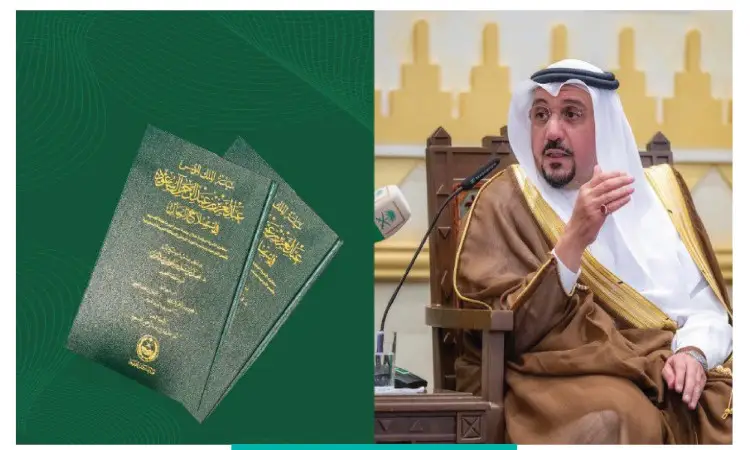The University issued a book on the historical era of the Kingdom's establishment entitled "The Policy of the Founding King Abdulaziz bin Abdulrahman in Reclaiming Men", prepared by a group of professors from the Department of History at the College of Languages and Humanities at the University. The book was written by His Royal Highness Prince Faisal bin Meshal bin Saud bin Abdulaziz, Governor of Al-Qassim Region, and was printed by the University.
The book, which includes three chapters, was prepared by a group of history professors at the university, namely: Prof. Dr. Ahmed bin Abdulaziz Al-Bassam, Dr. Sulaiman bin Muhammad Al-Attani, and Dr. Muhammad bin Abdulrahman Al-Salama. The book was reviewed by Prof. Khalifa bin Abdulrahman Al-Masoud. The first chapter was entitled: King Abdulaziz's leadership qualities and the impact of his forgiveness in reclaiming men, while the second chapter was entitled: The selection of men by King Abdulaziz and his follow-up, and the third chapter was entitled: The effects of King Abdulaziz's reclamation of men.
The introduction to the book by His Highness the Emir of Qassim addressed the idea of the book, which stemmed from His Highness' interest in the biography of the founding king and his keenness to highlight it with new historical readings. This book came as a result of one of His Highness' weekly sessions at the Tawhid Palace, which dealt with the founder's approach to reclaiming men, with the participation of a group of specialized academics, and as a result of a joint effort with the university, which took over the printing and production of the book for the reader, to introduce his approach in dealing with men and his skill in attracting them to his side after they were on the other side.
His Royal Highness Prince Dr. Faisal bin Meshal bin Saud bin Abdulaziz says in his introduction to the book: "Through my reflection on the biography of the founder - may God rest his soul - and my realization of his status I became attracted to delving into his history and interested in highlighting his approach and exploits. From this point of view, I was keen to host many historians and specialists in the weekly sessions of the Unification Palace to talk about the qualities of this great man and highlight his exploits and struggles in the stages of unifying this great entity; to set an example for us and generations after us; through clear examples, clear examples, and witnessed situations; in which he used the policy of rehabilitating men and giving the opportunity to all those who want to Through this policy, he was able to rehabilitate dissenters and those who strayed from the righteous path, not only by preventing their enmity, but also by returning them to the path of truth and turning them to the positive path, and changing their path from warriors and enemies to instruments of good and construction, to become great leaders and pioneers in the honor of representing the country and building it at home and abroad."
The book illustrates the biography of King Abdulaziz as a role model for a balanced ruler, characterized by Islamic qualities and Muhammadan virtues in the behavior of good dealing and following the method of pardon when capable, by tracing his full biography, which was endorsed by reliable written sources and conveyed by the mouths of his Arab and foreign contemporaries, which resulted in the rehabilitation of many personalities and changed their path to work in building the Kingdom of Saudi Arabia after they were among its opponents.





